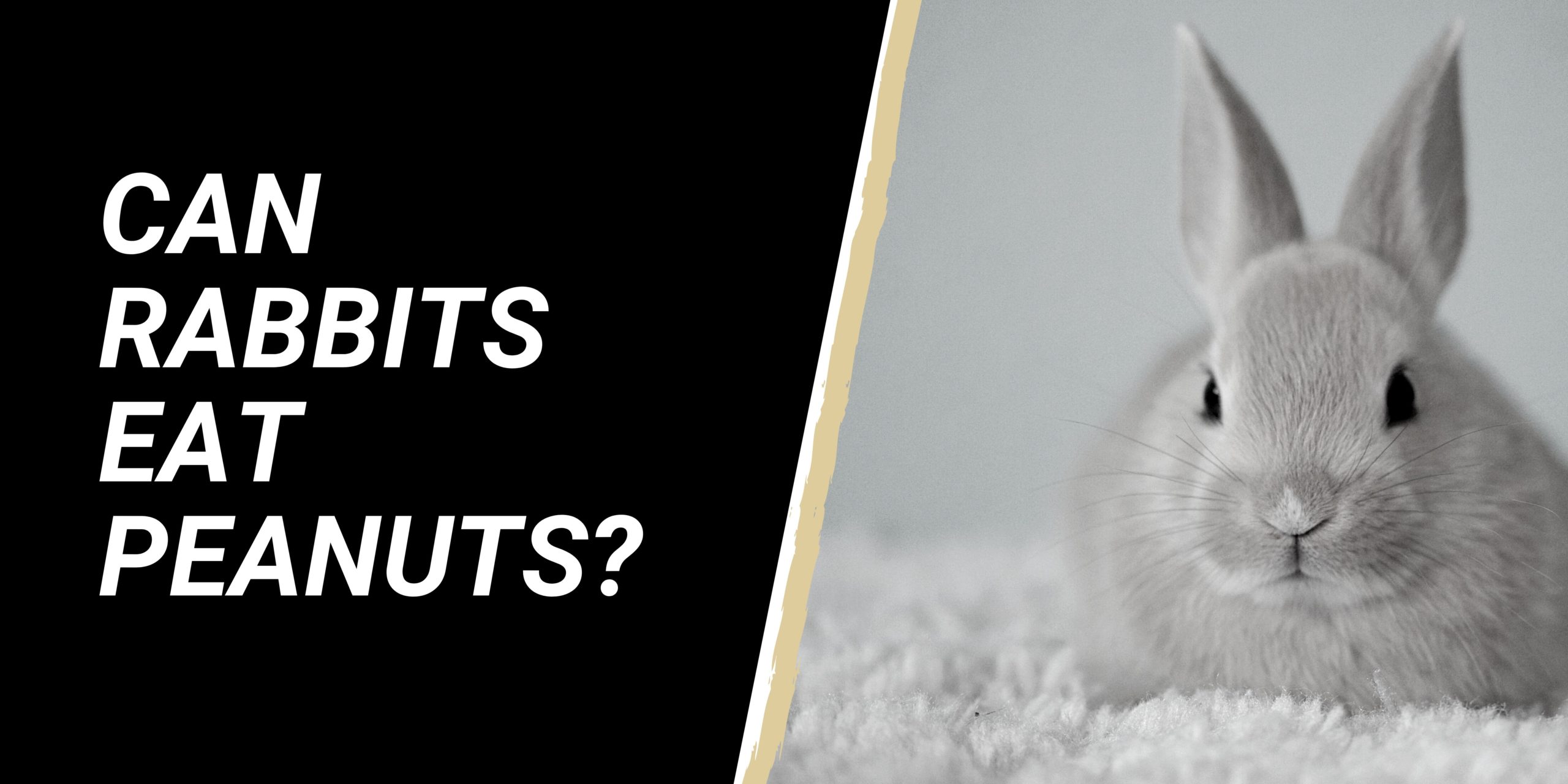Question: Can rabbits eat peanuts?
Answer: Whilst rabbits could eat a very small amount of peanut, peanuts are not the best choice for them, in fact peanuts can cause more harm than good and we would not advise feeding rabbits peanuts.
Rabbits are beautiful creatures, that can be a good company for human beings, this is why they became more and more popular as pets, there are different kinds of them, and most of them are sweet and friendly.
A very unusual question about treats for bunnies is whether they can eat peanuts or not, let’s find out.
About peanuts
It is well known that peanuts are a great source of protein and fiber, however they have large amounts of fat and are not as organic as other legumes coming from the trees. But mostly you should know that a peanut contains magnesium, Vitamin E, Omega-3, Omega-6 and fat. The fat is monounsaturated. The Omegas are polyunsaturated. Rabbit’s body cannot digest those elements as well as humans.
Do rabbits like peanuts?
Lots of animals enjoy peanuts, peanut butter, peanut jelly and other food which comes from it, rabbits are not the exception. They do like peanuts and will happily eat them.
Are peanuts bad for rabbits to eat?
Yes, they are bad for rabbits, even though they are nutritious they are not suitable for bunnies. A single peanut will not kill your rabbit, however there are far better choices out there.
Are peanuts safe for rabbits to eat?
No, they are not. Peanuts are junk food for rabbits, they are in fats and carbohydrates that will make the bunny sick. The basic explanation is that their digestive system is not made to process high amounts of fat, carbohydrates and energy as we humans are.
How many peanuts should I feed my rabbit?
The correct answer is none.
Peanuts put you rabbit’s health at risk, they can make the bunny terribly sick. It doesn’t matter if we are talking to an specific age or not. Neither baby rabbits nor adults should eat peanuts.
GI Stasis
Rabbits can suffer of some specific affections such as G.I stasis which is a disease caused in their digestive system by too many carbohydrates, fats and a lack of fiber. In case your bunny is suffering of some of the symptoms such as:
- Look bloated,
- Pass little to no stool,
- Have big, gas-filled stomachs
Which are the most common it is important to consult a veterinarian in order to get the treatment needed.
A balanced Diet is always important
Since we know now that peanuts are not an eligible option let’s explore some other that will make the trick to the treat.
Bunnies thrive on a diet that consists mostly of fresh hay. The first important suggestion we can make to you is to choose a nutritional complete rabbit food and read the labels and make sure you rabbit is getting the right amounts of food every day.
Even though our little friend can survive with store bought rabbit pellets, they’ll appreciate more a fresh diet, this can prevent them from suffering of boredom and stress and it will be also good to improve their tooth condition. Untreated softwood sticks from trees such as apple and pear are ideal these will prevent their teeth from overgrowing.
We’ll give you a list of food that is a good choice for your bunny but in general terms we can say that a cup of leafy green veggies and a few crunchy ones are great options. You can also consider little amounts of fruit twice a week as a maximum and including a colorful all natural treats can make a nice difference.
All named before depends a lot on their weight, the advice is to give no more of a teaspoon per two pounds of the rabbit’s body weight. In addition to everything mentioned before it is vital that the rabbit has easy access to a source of healthy and fresh water all the time.
Vegetables that can be fed to a rabbit daily:
- Bell peppers
- Bok choy
- Brussels sprouts
- Carrot tops
- Cucumber
- Endive
- Escarole
- Fennel
- Herbs: basil, cilantro, dill, mint, oregano, parsley, rosemary, sage, thyme
- Lettuces: romaine, green leaf, red leaf, Boston bibb, arugula, butter
- Okra leaves
- Radicchio
- Radish tops
- Sprouts: alfalfa, radish, clover
- Watercress
- Wheatgrass
- Zucchini
Vegetables and plants to give sparingly (one or two times a week) to a bunny:
- Broccoli (stems and leaves only)
- Carrots
- Chard
- Clover
- Collard greens
- Dandelion greens (pesticide-free)
- Flowers: calendula, chamomile, daylily, dianthus, English daisy, hibiscus, honeysuckle, marigold, nasturtium, pansy, rose
- Kale
- Spinach
What can I replace peanuts with instead?
There are options that you can consider to replace peanuts in small quantities and in an infrequent way, healthy treats for your bunny include small pieces of fresh or freeze-dried fruit, consider the ones we told you before. Natural, unprocessed mixes that include hay and dried flowers (mentioned above) and Oxbow brand rabbit treats is also a good idea.
As we mentioned before is important to always read the ingredient list on store-bought treats because not all of them are safe for bunnies, try to avoid treats that include added sugar, preservatives and artificial coloring, and never give your rabbit human treats.
Conclusion
Peanuts can be harmful for rabbits due to the components inside them and the way these little animals organisms can respond to it. It is highly not recommended to give your bunny peanuts, there are other options where you can choose from to treat your little friend and give a balance diet full of nutrients while avoiding to make it boring for your pet. It is also important to remember that fresh clean water is as important as food and they need to have a near source of it.
